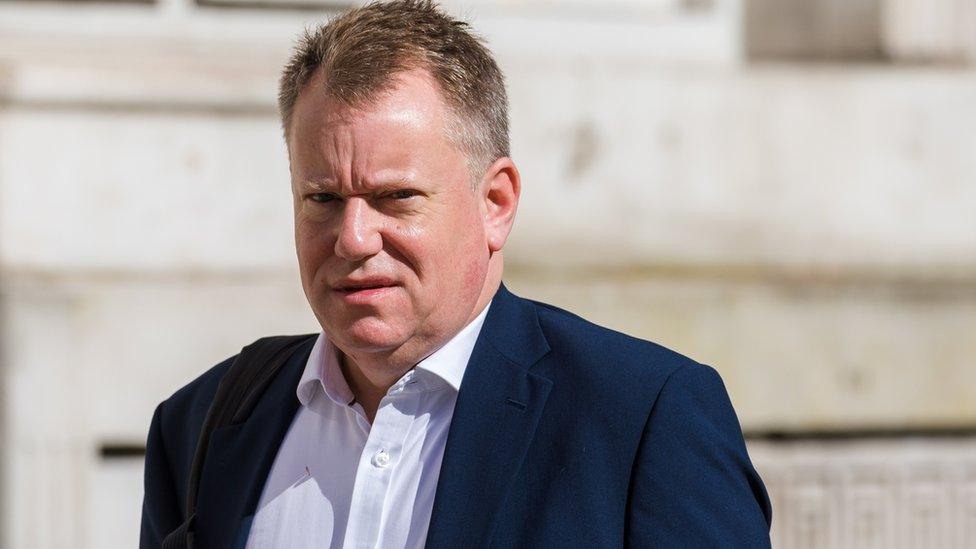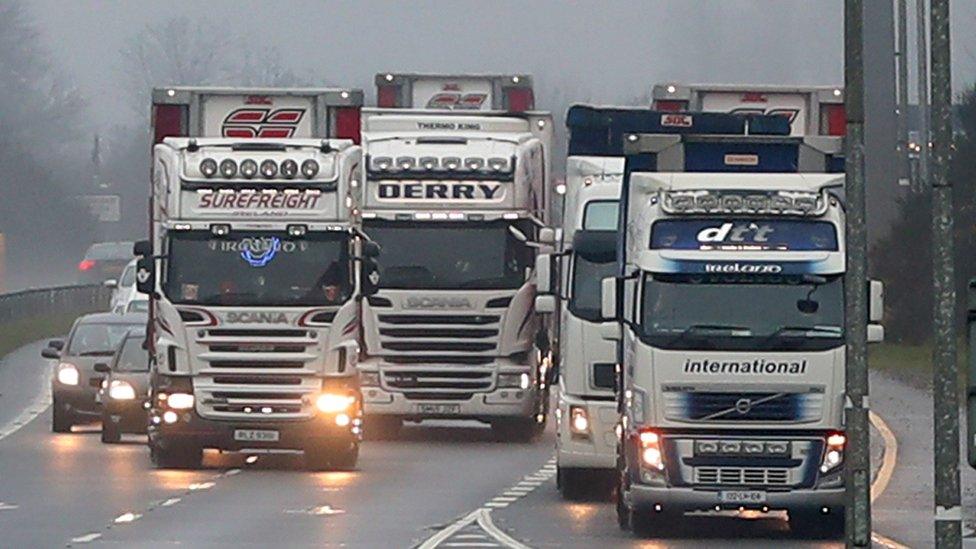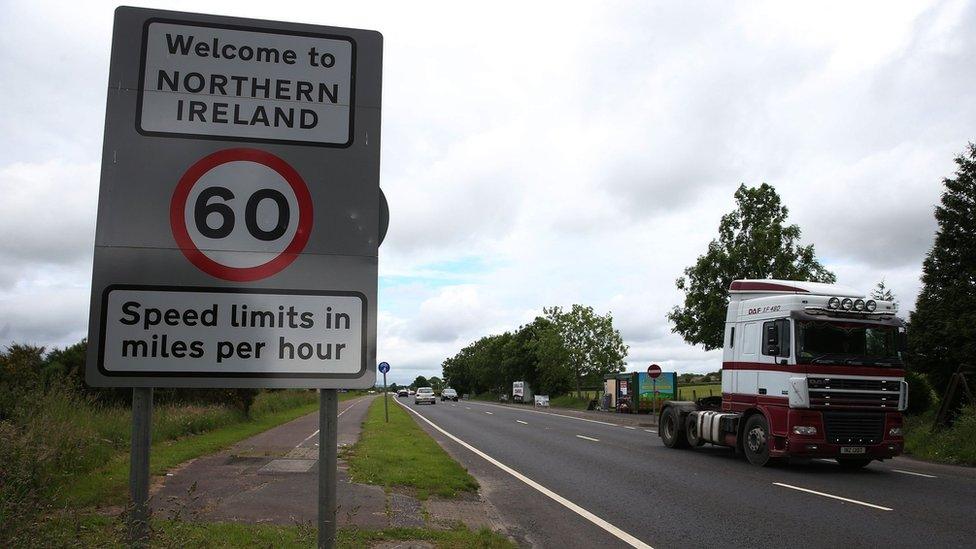Brexit: Cross-border trade rise reflects NI Protocol problem says Frost
- Published

The protocol means some goods from Great Britain are now subjected to checks at Northern Ireland's ports
Increased cross-border trade in Ireland as a result of the Northern Ireland Protocol is "in many ways a problem", UK Brexit Minister Lord Frost has said.
The protocol makes it harder for businesses in either part of Ireland to import goods from Great Britain.
That has contributed to a surge in trade between Northern Ireland and the Republic.
Lord Frost said this was a problem as it showed Northern Ireland firms cannot use their first choice suppliers.
"I don't think it totally makes sense for us to encourage more of that development, rather than deal with the consequences of it," he told a House of Lords Committee.
The protocol, which Lord Frost negotiated, keeps Northern Ireland in the EU's single market for goods, which means that products arriving from Great Britain are subject to new checks and controls.
Goods arriving from Great Britain into the Republic of Ireland face similar processes.
However, goods trade across the Irish border remains as it was before Brexit, with no new checks and controls.
That has prompted some businesses to source more products on the island of Ireland rather than from Great Britain.
In the first quarter of 2021, Northern Ireland exports to the Republic of Ireland were up by 60% to more than €1bn (£859m).
The value of trade in the other direction was up by 40% to €977m (£841m).
Lord Frost also gave a sceptical response to an EU proposal to guarantee the free flow of medicines from Great Britain to Northern Ireland.

Lord Frost is a minister of state at the Cabinet Office with responsibility for overseeing the implementation of the protocol
The protocol means Northern Ireland is still in the EU's pharmaceutical regulatory system while Great Britain is not.
Northern Ireland gets most of its medicines from distributors in Great Britain, but that is due to become more difficult in January when a grace period expires.
The EU said it had identified a "creative solution" to the problem which will involve changing EU law.
Lord Frost described the EU plan as "a valiant effort" and "quite complicated" but he was not convinced it deals with all the potential issues.
'Break new ground'
He told the committee that he had sent a detailed proposal to the EU on agri-food issues.
Checks on food products moving from Great Britain to Northern Ireland are the biggest practical difficulty created by the protocol.
Lord Frost's plan is based on the EU recognising that UK agri-food rules and standards are equivalent to its own.
The EU has limited equivalence agreements with some countries, such as New Zealand, which reduces the need for checks on some products.
Lord Frost acknowledged that his proposals were broader than these existing equivalence agreements and would require the EU to "break new ground".
The UK government is due to publish proposal for a way forward on the protocol next week.
Related topics
- Published2 February 2024

- Published19 May 2021

- Published15 April 2021
